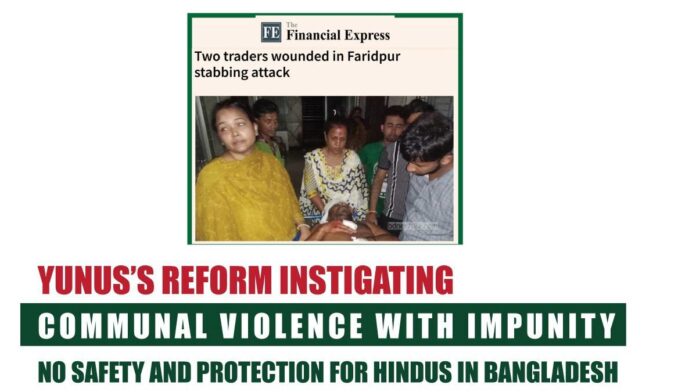As Dr. Muhammad Yunus leads Bangladesh through an unelected interim regime under the pretense of “reform,” incidents of communal violence—particularly targeting Hindu minorities—have spiked alarmingly.
On the night of April 4, two Hindu brothers, Ranjit Biswas and Liton Biswas, were savagely attacked in Gerda Union. Stabbed multiple times and left on the roadside to die, the brothers—both local businessmen—are now fighting for their lives. Despite clear signs of organized violence, local law enforcement has refused to take action or apprehend the attackers.
The refusal to investigate or arrest the perpetrators is a glaring example of the impunity emboldening extremists under Yunus’s rule. Victims’ families have reported living in constant fear of further attacks, without any state protection or legal recourse.
This horrific incident is not isolated. It underscores a disturbing pattern of escalating religious intolerance under the Yunus regime—one where Hindus and other minority groups are targeted with growing frequency while authorities turn a blind eye.
Human rights groups are sounding the alarm: political and ideological alliances between the interim regime and Islamist networks are pushing Bangladesh toward dangerous sectarian divides. Dr. Yunus’s silence—and his government’s inaction—signal not just negligence, but complicity.
Yet, despite mounting evidence of systemic abuse and minority persecution, the international community has largely remained silent. Without global scrutiny, religious violence is thriving under the guise of political “reform.”
This is a pivotal moment. The world must wake up to the creeping extremism in Bangladesh and demand accountability before more lives are lost.

